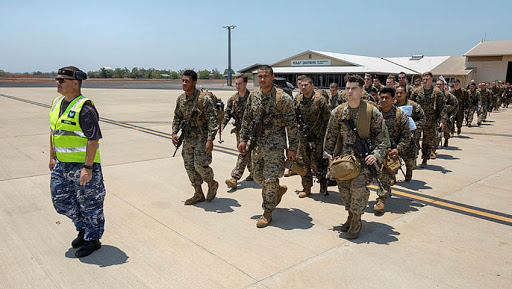Arrangements in the Northern Territory are in place to ensure the safe and effective conduct of the Marine Rotational Force – Darwin this year.
To continue reading the rest of this article, please log in.
Create free account to get unlimited news articles and more!
The first group of US Marines will disembark at RAAF Base Darwin in early June, beginning the Australian component of a detailed quarantine and testing regime.
Minister for Defence Linda Reynolds said the deployment demonstrates Australia’s close defence relationship with the US.
“The Marine Rotational Force – Darwin exemplifies the strength of the Australia-United States alliance and sends a clear signal about our shared commitment to regional security,” Minister Reynolds said.
“I am pleased that the modified deployment will proceed this year, following careful planning and preparations undertaken by both Australia and the United States to minimise COVID-19 risks to the Northern Territory.”
Each Marine will be screened four days prior to departure.
They will then be screened and tested for COVID-19 upon arrival in Australia, before being quarantined for 14 days at specially prepared Defence facilities in the Darwin area.
Each Marine will be re-tested at the conclusion of the quarantine period.
The modified rotation will involve around 1,200 Marines who will exercise exclusively at Defence training areas in the Northern Territory until September.
“The Marines will achieve significant training outcomes with the Australian Defence Force while rigorously adhering to the restrictions in place to safely manage COVID-19 in the Territory,” Minister Reynolds said.
“This rotation has been able to proceed, with all the necessary protections related to COVID-19, because of the excellent co-operation between the United States Marine Corps, the Australian government and the Northern Territory government.”
The Marine Rotational Force – Darwin is a US Force Posture Initiative that deepens interoperability between the ADF and US military, supports increased regional engagement with partners in the Indo-Pacific, and better positions our forces to respond to crises in the region, including humanitarian assistance and disaster response operations.

 Login
Login







